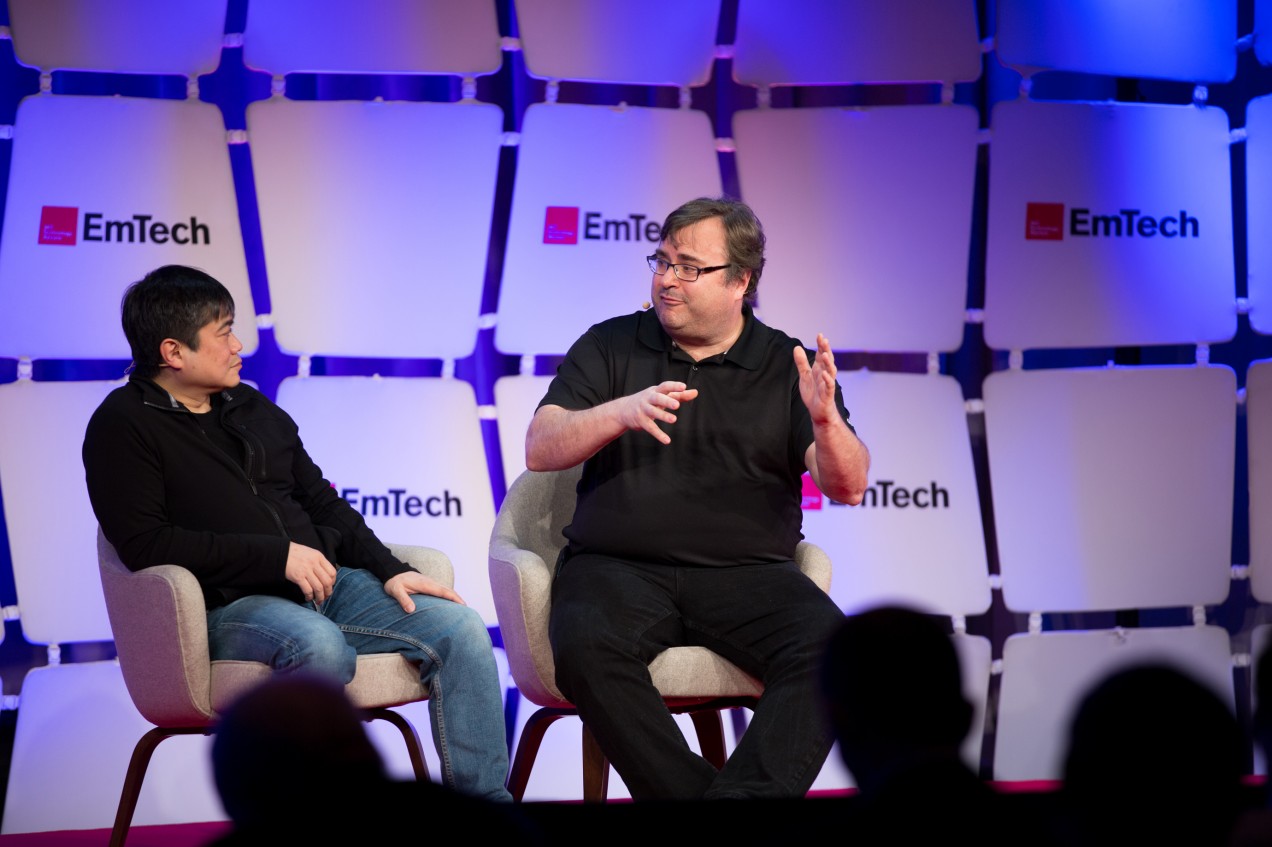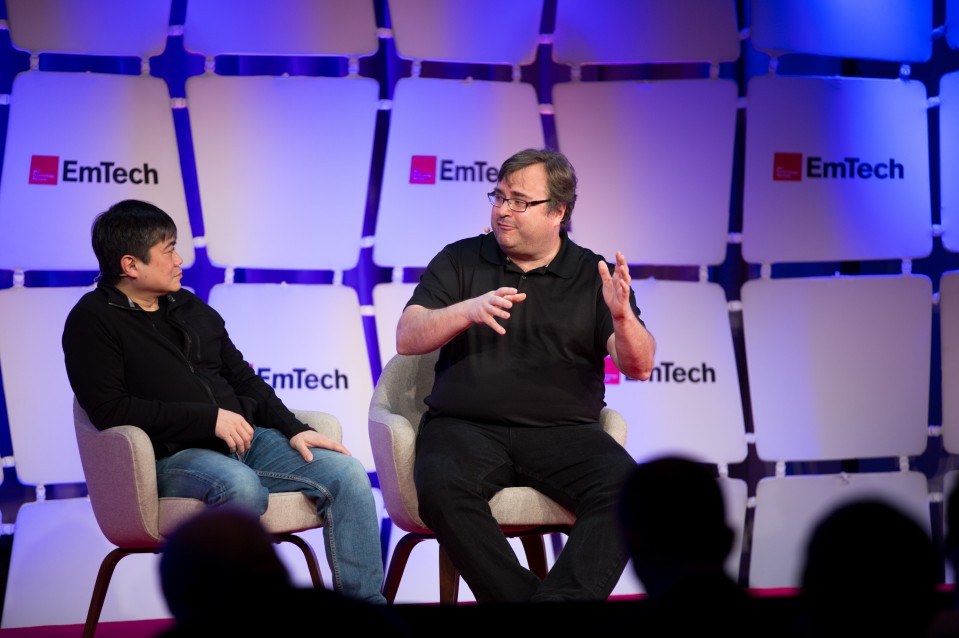

Business Impact
Reid Hoffman: It’s Time to Change Silicon Valley Culture
The LinkedIn cofounder and venture capitalist explains how he’s trying to combat sexual harassment and economic inequality in the tech industry and beyond.

Reid Hoffman likes to say, “With great power comes great responsibility.” Usually, he’s referring to tech companies like the ones he has founded (LinkedIn), helped lead (PayPal), or advised (Microsoft) during his storied career. But he could also be talking about his own clout in the business world and his efforts to finance initiatives that aim to improve the world through civic action, education, and technology.
He discussed some of those projects, including two organizations developing artificial intelligence to benefit society and an annual award that honors “responsible disobedience,” in a conversation with MIT Media Lab director Joi Ito at the EmTech MIT 2017 conference in Cambridge, Massachusetts, on Wednesday.
Hoffman also tries to use his influence to effect societal change. In recent months he has denounced sexism and harassment in the venture capital industry and called for empathy for workers displaced by technological advances. He talked to MIT Technology Review offstage at EmTech about the relationship between technology and inequality and how he’s combatting the more corrosive aspects of Silicon Valley culture.
To what extent is the technology industry accountable for some of the growing economic and social disparities in this country?
A lot of things have created pressure on middle-class jobs, such as globalization and trade. And technology companies across the board were involved, not just the five [largest] tech giants. How many manufacturing jobs have Google or Apple displaced, really? But I don’t think that obviates their responsibility. We’re all in this society together, and with great power comes great responsibility.
Speaking of tech giants, what should companies that function as global technology platforms be doing to try to reverse the negative trends we’ve been seeing in terms of sexist and racist practices?
[Change will] happen through multiple steps. One of the good steps was the beginning of the publication of diversity numbers, and discussing where we are and the things we’re doing to improve diversity. I have personally participated in those conversations at LinkedIn and now [as a board member] at Microsoft, and I know that places like Facebook are similarly dedicated to this topic. That said, as you get larger, you have more responsibility to do well; the standard is higher for you. So it’s fine if people are yelling at the big technology companies and saying, “Get better faster, this is not okay, we’re worried about it.” I think that’s the right dynamic.
Venture capitalists are another traditionally powerful group that you’re trying to influence. In June, you urged other VCs to follow a “Decency Pledge” that stipulated zero tolerance for sexual harassment against entrepreneurs. How did your peers react to that idea?
The majority was enthusiastic. I saw entire venture firms saying, “I take the pledge too.” It was a way to state publicly a commitment to the ethics of treating entrepreneurs with dignity and, if you see [predatory and inappropriate behavior], to not do business with the people who are doing it. I think it was a helpful way of saying, “Let’s move from ‘Oh my God, this is a really broken system’ to ‘How can we fix this?’”
The decency pledge is just a first step. Since then I’ve participated in a set of conversations about how to make the pledge more concrete. [For example, the pledge called for the creation of a central reporting function for harassment.] So we’re talking about how to establish that as a sustaining thing and what the business model would be to pay for it. I’m sad it’s taken this long for this to become an issue that everyone knows about and is talking about in the Valley, but now it’s at that point, and that gives me hope we may actually see concrete change over the coming months. I think zero tolerance for sexual harassment, especially egregious sexual harassment, is a completely feasible goal.
How are you personally working to promote diversity and inclusion in the VC industry, such as funding more companies led by underrepresented minorities and helping people from those groups get hired and promoted as VCs?
My firm, Greylock Partners, and I make an extra effort to meet with diverse entrepreneurs, and we invest in them more widely through our Discovery Fund [which does smaller, seed-stage deals]. We also create communities that help entrepreneurs solve various problems—everything from design to technology and prototyping—and we make sure those communities themselves are diverse.
Basically, for everything we do, we ask the question, “Are we being inclusive?” That includes everything from partner recruitment—which we talk about every month, even though we only hire a new partner every two years, because we’re a small group—to how the whole firm operates. We can’t always get it right, but if you’re asking the question, you’re always trying, and we think that at least puts you on the right learning path to change.
Turning our attention to another disempowered group, what should be done to provide job opportunities and a safety net for people who are displaced by technological advances?
There’s a set of folks in the Valley focused on giving people a universal basic income. It’s an interesting idea, but I also think there are challenges, because people find meaning in work—and I’m also not sure the numbers square once you work them all out.
One thing I’ve been thinking a lot about is what you might call “edufare,” as opposed to welfare. It’s about helping displaced workers get better skills, which then provides a path for them. One of the nonprofits that I’m funding personally is called Opportunity@Work, which is essentially doing diverse inclusion, [enabling a broader selection of Americans to get well-paying] tech jobs.